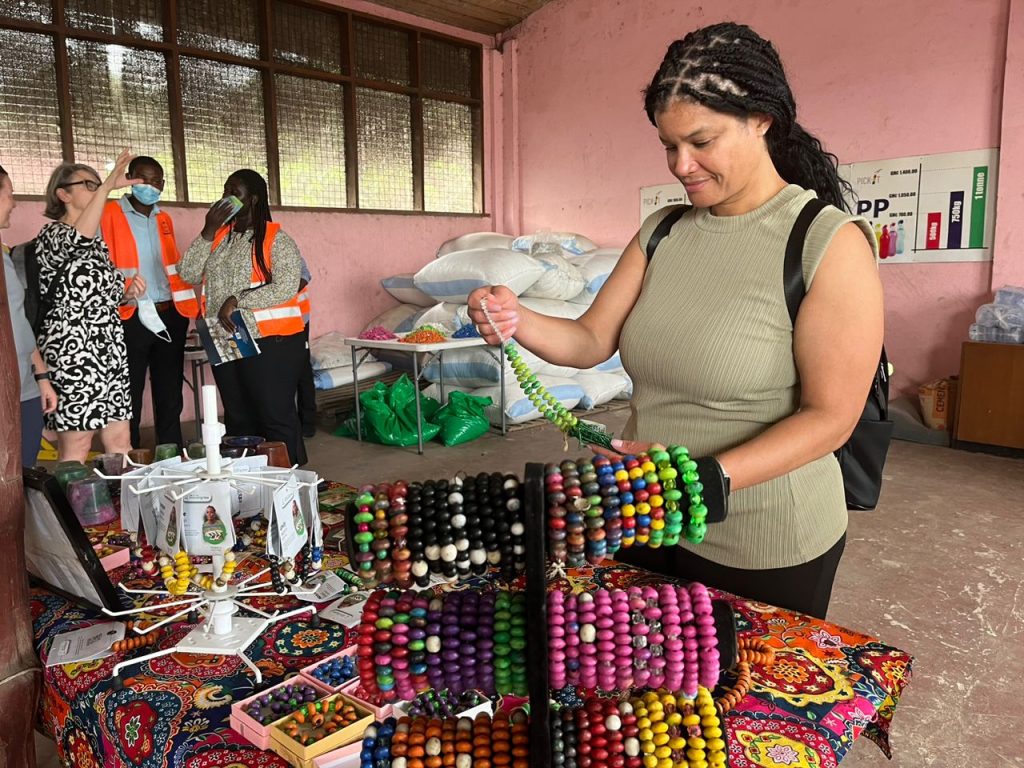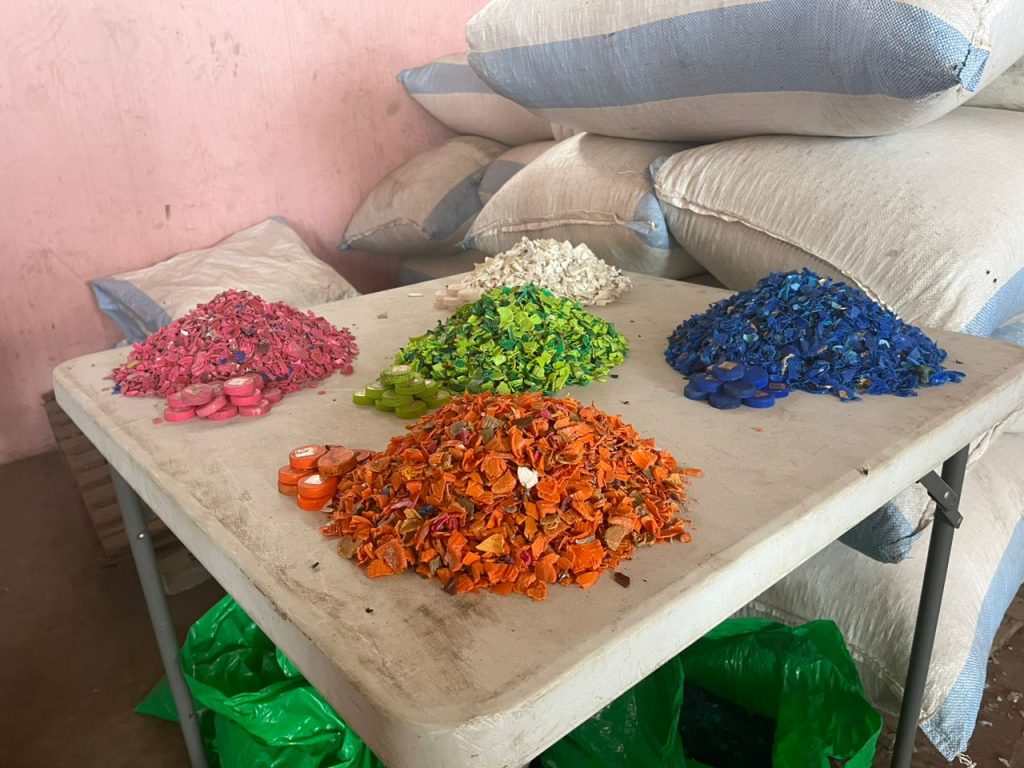Albert Oppong-Ansah
Accra Oct. 04, GNA- Susanna Klugah wakes up at down everyday apart from Sundays to pick used water sachets and bottles left behind by commuters.
Her routine enables her to trek in good time from her home at Ashaiman market, one of the busiest markets near Accra, Ghana’s capital city.
A little more sleep means losing her picking spot, which other pickers eagerly linger around to snatch.
“I cannot afford not to go picking because it is my livelihood. The plastic waste collection is a big deal for me, because without that my two children will starve and not get educational materials to attend class,” she tells the Ghana News Agency.
It is a booming business, which earns her an average of GHS 1100 (100USD), a month from the sale of plastic materials collected.

Susanna is just one of the thousands of women in the plastic waste value chain of the country, making a living and taking care of the needs of her dependents.
Mismanagement of plastic wastes remains one of the biggest challenges of the country as more than one million tonnes of plastic waste are generated every year, according to the National Plastic Policy document.
The policy suggests that domestic manufacturing accounts for less than five per cent of all plastics entering the economy.
However, there is a ready market for waste plastics, especially the single use ones and bottles. The bottles are not only processed, shredded and sold but are raw material for a number of products.
In Ghana, some 120 companies manufacture over 52,000 tonnes of various plastics and plastics products per year.

Cynthia Akoto has moved on from collecting plastic waste to selling plastics, giving it a second life.
Trained by Environment 360, a not-for-profit organisation under the Circular Innovation Hub more than a year ago, she is able to produce a number of plastic products.
“I look at the rate on the market and decide what to do with plastics,” she says. Other 29 cohorts of Cynthia are also flourishing in the plastic business.
In the last year, Cynthia and her cohorts recycled nearly one tonne of plastics into beads, buttons and coasters, generating nearly GHC50,000 GHC.
Women associated with the project have raised their incomes to nearly 200 per cent, says Ms Selasi Charwe-Glover, Project Manager at Environment 360.
The Circular Innovation Hub is seeking to support entrepreneurs from marginalised groups by developing a machine time share model that allows them to become small-scale recyclers and decrease the amount of plastic within their communities.
The Hub, she says, needs technical, academic and private partnerships that support the decentralisation of recycling and improved technology and processing methods.
It also needs academic partnerships that can facilitate research in tandem with the organisation to support a just transition to the green economy.
Dr LaShanda Korley, the U.S. Department of State Science Envoy, is happy about the innovation and how the women have been empowered to add value to the waste.
“This is a learning process of the plastic waste value chain. There is more we can learn and work on, in the space to beat plastic,” she said during a visit to the Pick- it centre at Tema in the Greater Accra Region as part of the plastic recycling workshop.

“I am a scientist, and science is only as good as understanding the nature of the problem. The innovation here is fantastic and many people need to know about this. Africa definately has a stronger sense of circularity and needs to be upscaled.”
Dr Korley acknowledges that plastic waste pollution is one of the climate crises confronting humanity and that it is important to put in more effort to make the plastic circular economy work.
While stakeholders, including Environment 360 are working to take off a small fraction of the plastic waste menace, the Government says it is working to enforce the Extended Producer Responsibility (EPR) system to manage plastic waste in the country.
The EPR is a strategic policy intervention whereby the estimated environmental costs associated with a product throughout the product’s life cycle are added to the market price of that product, especially in the waste management sector.
Currently, the ministry is working on a law to make the EPR mandatory for all producers or marketers of plastic products in the country, says Madam Lydia Essuah, the Director of Policy, Planning, Monitoring and Evaluation at Ministry of Environment, Science, Technology and Innovation.
“We want to ensure that once you put out a plastic product on the market, you are mandated by law to collect it. In this regard, you have to make sure that as part of your marketing arrangement, you put in place a collection system so that anyone who buys your product knows where to take the waste to after using it,” she says.
While waiting for a holistic intervention by the Government, the likes of Susanna and Cynthia can only give a second life to a small portion of plastic waste as the rest litter the public space and clog up stormwater drains, rivers, and streams and end up in the oceans.
GNA